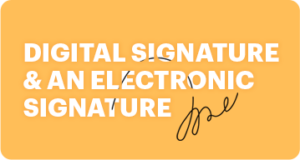Transform Healthcare: Learn How AI & Automation are Changing Medicine
Introduction: How AI and Automation are Transforming Healthcare
With the introduction of Artificial Intelligence (AI) and automation, the medical information industry is undergoing a radical transformation. These technologies are revolutionizing how healthcare data is collected, analyzed, and utilized. This new era of healthcare brings with it an array of potential benefits for healthcare providers and patients alike, including improved patient experience, increased accuracy, reduced costs, and more evidence-based care.
However, this shift to AI and automation has also raised some concerns. For example, changes to the workforce, lack of data privacy, and potential misuse of technology could all be serious issues to consider. Nevertheless, the potential of AI and automation in the medical information industry is undeniable–from automating administrative tasks to enabling more precise and personalized patient care.
Definition: Artificial Intelligence (AI) and Automation
Artificial Intelligence is the study of how computers can be made to think and act like a human. AI works by using computer algorithms to interpret data, understand patterns, and learn from experience. AI systems are designed to mimic the cognitive processes of humans, such as problem-solving, decision-making, and communication.
Automation is the process of using technology to automate tasks that previously required manual labor. Automation can be used to streamline processes, improve organization, and increase accuracy. In the medical information industry, automation can be used to collect healthcare data, store patient records, and generate personalized care plans for each patient.
Historical Perspective: AI and Automation in the Medical Information Industry
The use of Artificial Intelligence (AI) and automation in the medical information industry is not a new concept. In fact, technology has been used to improve efficiencies in healthcare for many years, from early automated systems to modern-day machine learning algorithms. Over the last two decades, AI and automation have become increasingly prevalent in the medical information industry, leading to more accurate patient care, better outcomes, and cost savings for patients and providers alike.
As technology advances, so too do the benefits of AI and automation. To better understand the history of AI and automation in the medical information industry, we must look back to its beginnings. In the mid-1990s, automated systems entered the healthcare sector, making it easier for clinicians to access patient and medical records. In the following decades, advancements in technology and data analytics allowed for the implementation of sophisticated predictive analytics, such as natural language processing (NLP) and deep learning, which enabled medical professionals to more quickly and accurately diagnose patients.
Today, AI and automation are being used in many facets of healthcare, from diagnostics to drug discovery. While some healthcare practitioners remain skeptical of the technology, others recognize its potential to provide more precise and evidence-based care. Ultimately, AI and automation have the potential to revolutionize the medical information industry, giving healthcare providers more insights into their patients’ needs and helping them make informed decisions.
Benefits of AI & Automation in Healthcare
The use of Artificial Intelligence (AI) and automation can provide a range of benefits to the healthcare industry. AI can help improve patient experience by providing more personalized care and increased accuracy in diagnosis and treatments. It can also help reduce costs associated with personnel, as certain tasks are automated, and enable more timely access to medical information.
The implementation of AI and automation is creating new opportunities for healthcare providers to improve patient care in ways that have not been possible before. For example, AI can be used to analyze vast amounts of data to identify patterns in patients’ health trends and detect potential problems earlier, enabling physicians to intervene before the problems become severe.
AI systems can also provide personalized treatment options tailored to individual patients, based on their health history and age. For instance, AI-based medical advice systems are being developed to suggest the best course of action for various ailments or diseases that can be tailored to specific patient profiles. Additionally, AI and automation can help streamline administrative processes, such as insurance claims processing.
Challenges for AI & Automation
As with any new technology, there are challenges that come with the implementation of Artificial Intelligence (AI) and automation in healthcare. These challenges must be addressed in order for this technology to be successfully incorporated into the medical information industry.
Some of the potential challenges include changes to the workforce, as well as issues related to data privacy and security. AI and automation can reduce the need for certain types of jobs, which could result in job losses and fewer opportunities. There is also a potential risk of data being misused or stolen if proper security protocols aren’t in place.
In order to ensure that AI and automation are used effectively and ethically, it is important that healthcare organizations take these issues into consideration and put appropriate measures in place.
Evidence-Based Care
AI and automation are transforming healthcare by enabling more precise and evidence-based patient care. Evidence-based patient care is focused on data that has been gathered from studies and research, which ensures decisions are based on the best possible information. With AI and automation, healthcare providers are able to access and analyze large amounts of data to determine the best course of action for individual patients. This approach helps to reduce medical errors, improve outcomes, and ultimately provide better care.
AI and automation also make it possible to identify patterns and trends in patient health data. This allows healthcare providers to anticipate potential issues before they happen, allowing for preventative measures to be taken. For example, AI and automation could be used to detect a rise in incidents of a particular type of infection in a certain area, giving healthcare providers the opportunity to act quickly to stop the spread of the infection.
In addition, AI and automation can be used to monitor the health of patients remotely. This means patients can receive regular updates and feedback about their medications, treatments, lifestyle, and other factors that could affect their overall health. This type of monitoring can help to ensure patients are receiving the best possible care, improving their quality of life and promoting their overall wellbeing.
Examples of Use Cases
The use of Artificial Intelligence (AI) and automation in the medical information industry is becoming increasingly widespread, leading to more efficient and effective healthcare services. For example, AI-based algorithms are being used to accurately diagnose illnesses, automate administrative tasks, and optimize the delivery of care.
In addition, AI and automation are being utilized for predictive analytics to anticipate patient needs and provide proactive care. This technology is also being used to help manage costs associated with treatments and ensure that practitioners are up to date on the latest guidelines for best practices.
We can also look to the development of automated assistant robots for hospital facilities. These systems are designed to interact with patients, track vital signs, and provide assistance with medication and other treatments.
AI-driven support systems have been developed to better manage research datasets and uncover insights from large data sets. These insights can be used to inform clinical decision making and improve patient outcomes.
Finally, AI and automation are being combined with Internet of Things (IoT) devices to develop smart systems that track health data and provide instant feedback for better management of conditions. These systems are being used in a wide range of applications, from diabetes management to cancer diagnosis.
The medical information industry today is being transformed by Artificial Intelligence (AI) and automation. These technologies are revolutionizing healthcare by improving patient experience, increasing accuracy, and reducing costs. While AI and automation offer many benefits, they come with challenges such as changes to the workforce and potential data privacy concerns.
Nevertheless, AI and automation are enabling more precise, evidence-based patient care. AI and automation are being used in a variety of ways in the medical information industry, from automating paperwork processing to providing intelligent decision support.
In conclusion, it is clear that the medical information industry is only just beginning to explore the potential applications of AI and automation. As the technology progresses, healthcare providers and patients alike will reap the benefits of this ever-evolving field.
Resources
If you are looking to explore AI and automation in the medical information industry further, there are a wealth of resources available. Here are some recommended options:
- The National Institutes of Health (NIH)’s website contains a number of articles and research about AI in healthcare.
- The Harvard Medical School offers a course on health informatics that covers topics such as AI and automation.
- The Association for Computing Machinery (ACM) has a publication dedicated to AI and its applications in healthcare.
- The World Economic Forum provides regular updates and reports on the use of AI in healthcare.
These are just a few of the many websites and publications that discuss the use of AI and automation in healthcare. By researching the topic further, readers can learn more about how these technologies are transforming the medical information industry.
Quiz: Test Your Knowledge of AI & Automation in Healthcare
Are you curious about how artificial intelligence (AI) and automation are transforming the healthcare industry? Test your knowledge with this interactive quiz! Answer the questions to find out how much you know about AI and automation in healthcare.
- What are the main benefits of incorporating AI and automation into healthcare?
- What challenges do AI and automation pose for the medical information industry?
- What are some examples of evidence-based patient care enabled by AI and automation?
- What use-cases have been seen in the medical information industry?
Subscribe to Updates
Stay up to date and learn more about AI and automation in the medical information industry. Sign up to our mailing list to receive regular updates on blog posts, research materials, and new developments.
You can also share this guide with your friends, colleagues, and networks so they can stay informed about AI and automation in healthcare. We invite you to join us in exploring how AI and automation are transforming the medical information industry.
It’s important to spread the word about the amazing potential of AI and automation in the medical information industry. That’s why we encourage readers to share this article on social media and any other platform! By increasing awareness of these technologies, more healthcare providers can take advantage of their many benefits and create a better patient experience. So don’t forget to click the share button at the end of this post so you can join us in transforming healthcare with AI and automation!
FAQs About Artificial Intelligence in the Medical Information Industry
1. What is Artificial Intelligence (AI)?
AI is an area of computer science that focuses on creating machines that can think and act like humans. It enables machines to make decisions based on data and analysis, without requiring human intervention.
2. What is automation?
Automation is the use of technology to automate processes and tasks. In the medical information industry, it often involves utilizing computer systems to automate routine activities such as data entry and document management.
3. How has AI and automation been used in the past?
AI and automation have been incorporated in the medical information industry for many years, primarily to streamline data entry and administrative functions. Recently, more advanced uses of AI and automation have been introduced to improve patient care, diagnose illnesses and reduce costs.
4. What benefits do AI and automation offer?
AI and automation can provide healthcare providers with improved accuracy, increased efficiency and cost savings. Additionally, it can improve patient experience by allowing providers to make more personalized and evidence-based decisions.
5. What potential challenges should be considered when implementing AI and automation?
Key considerations when introducing AI and automation in healthcare include making sure the workforce is properly trained, protecting patient data privacy, and ensuring ethical implementation of AI and automation tools.
6. How is AI and automation helping healthcare providers?
AI and automation are empowering healthcare providers to make more precise decisions and provide more evidence-based treatment plans. Additionally, they are reducing the amount of time spent on manual tasks such as data entry and document management, which allows healthcare providers to focus on patient care.
7. Can you give examples of AI and automation in the medical information industry?
Examples of AI and automation in the medical information industry include automated medical coding systems for billing purposes, AI-driven algorithms to detect conditions such as cancer, and voice recognition software to transcribe medical records.









